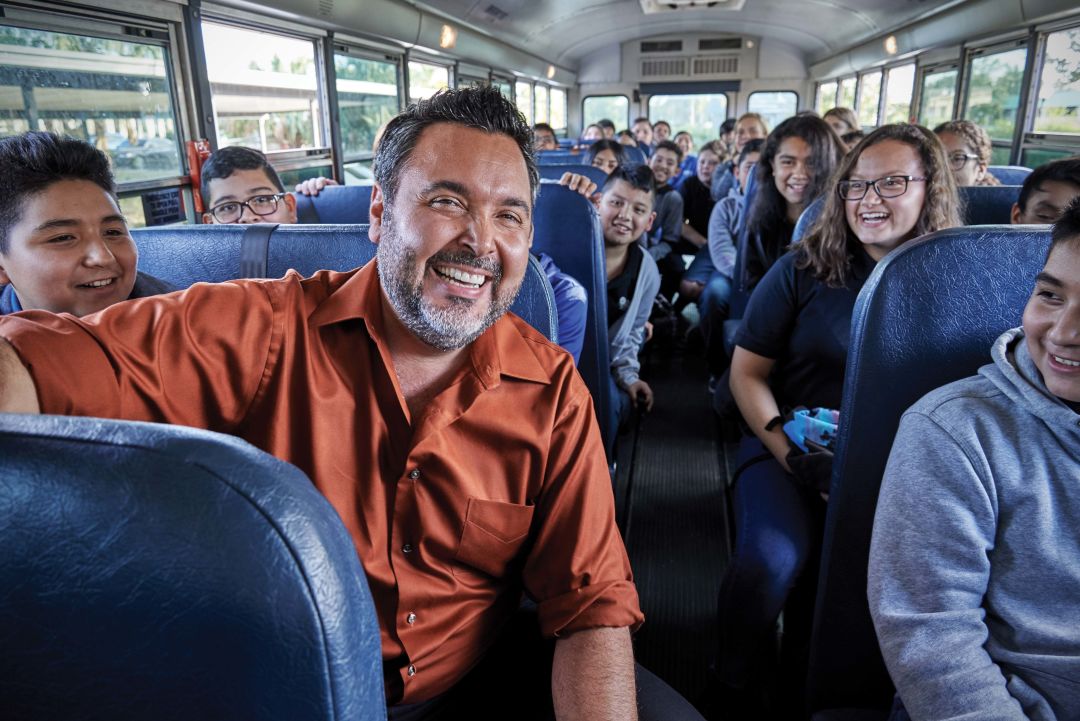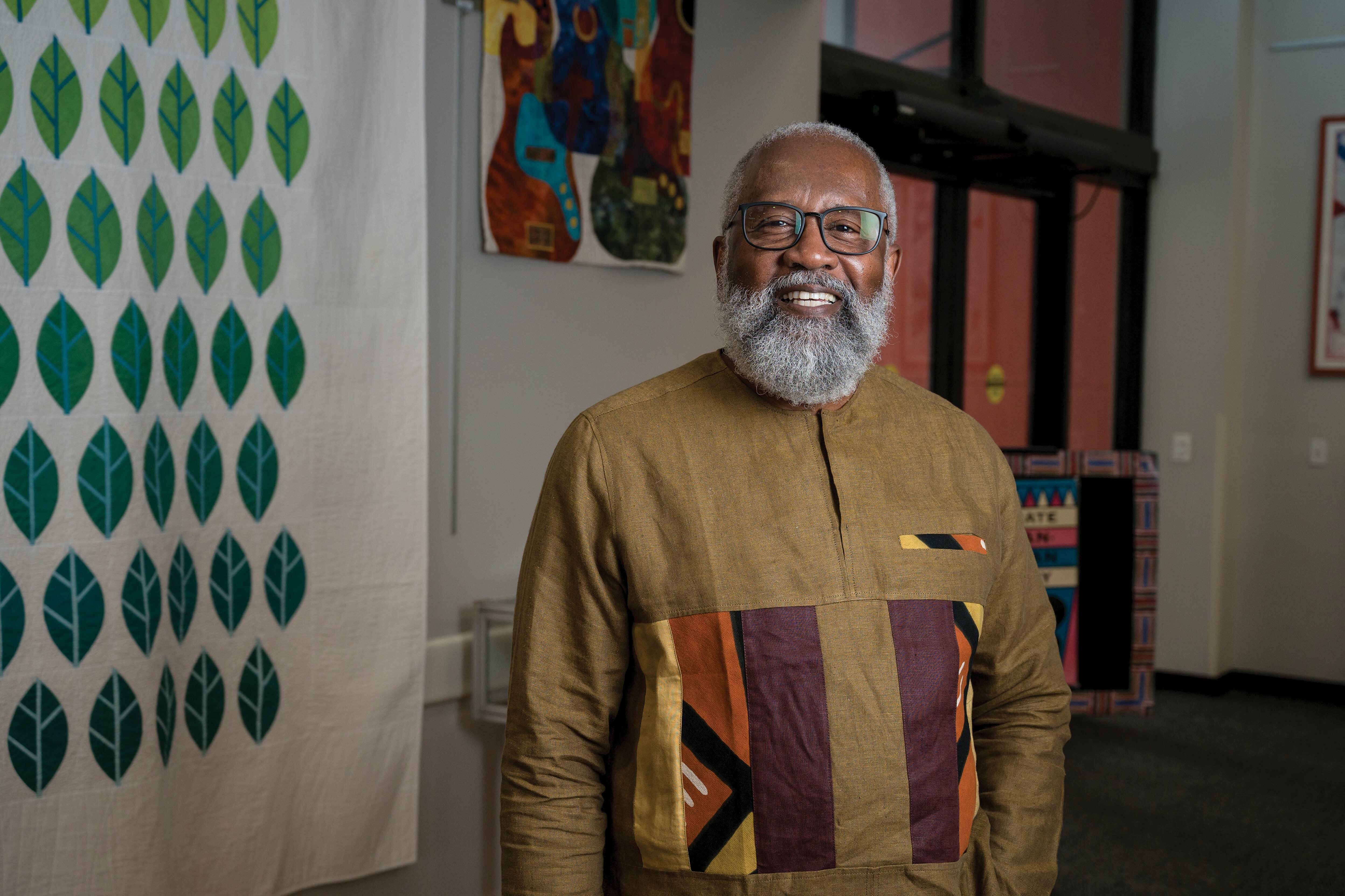Gabriel Ortiz Changes Young Lives Through the Power of Theater

Gabriel Ortiz
Image: Alan Cresto
In the fall of 2018, at the start of his annual theater-making project, Oasis Middle School teacher Gabriel Ortiz asked his class of predominantly low-income and at-risk students, “If I really knew you, what would I know about you?” Only female students volunteered. “Their insight astounded me,” he says. Last spring, the project culminated in performances of their original work, Don’t Tell Me How to Be a Girl, a profound look at race, sexuality, eating disorders, domestic violence and friendship.
“Participating in theater can change your life,” says Ortiz, 43. “I want a wider audience to see their stories.”
Ortiz credits “a village of many women” for raising him in dire circumstances. He grew up in inner-city Los Angeles, his father and older brothers in and out of prison for gang-related violence. When he was 12, his mother, who was a heroin addict, told him they’d been evicted. “We don’t have anything,” she said.
His maternal grandmother took them in on two conditions: that his mother detox, and that they attend church. A woman in the Pentecostal congregation invited him to perform in her original plays, which addressed community issues. “They moved hundreds of people,” Ortiz remembers. “And it was a way for me to get out of myself.”
Ortiz graduated from college and earned a full scholarship to study acting at Penn State, where he caught the eye of theater veterans from Sarasota’s Asolo Rep. He worked as a professional actor in Sarasota and around the country for two years. Still, he thought, this can’t be all there is.
In 2005, Edna Bailey invited him to be an educator and artist-in-residence at what would become Oasis Middle School in Bradenton. Ortiz considered it an opportunity to facilitate “an educational and spiritual change” for a crucial age group.
In 2012, Ortiz, now married to his childhood sweetheart, adopted a brother, age 3, and sister, 5, both with fetal alcohol syndrome. That same year, one of Ortiz’s students, the son of migrant workers, was orphaned. They took him in, too, and were suddenly a family of five. His daughter later suffered an aneurysm that left her with permanent disabilities. His youngest son was diagnosed with autism spectrum disorder. But Ortiz declines any suggestion of parental heroism. “Parents are parents,” he says. “You figure out how to do it.”
Last summer, Ortiz was one of only 23 educators in the country chosen by the English-Speaking Union to study Shakespeare at the Old Globe in London. This spring, he hopes to present his students’ latest theatrical production, Living Through the Middle.
“My life is about stories, tracing one point to the next,” he says. “That’s what I say to my kids: ‘How do we take over our narratives?’”



